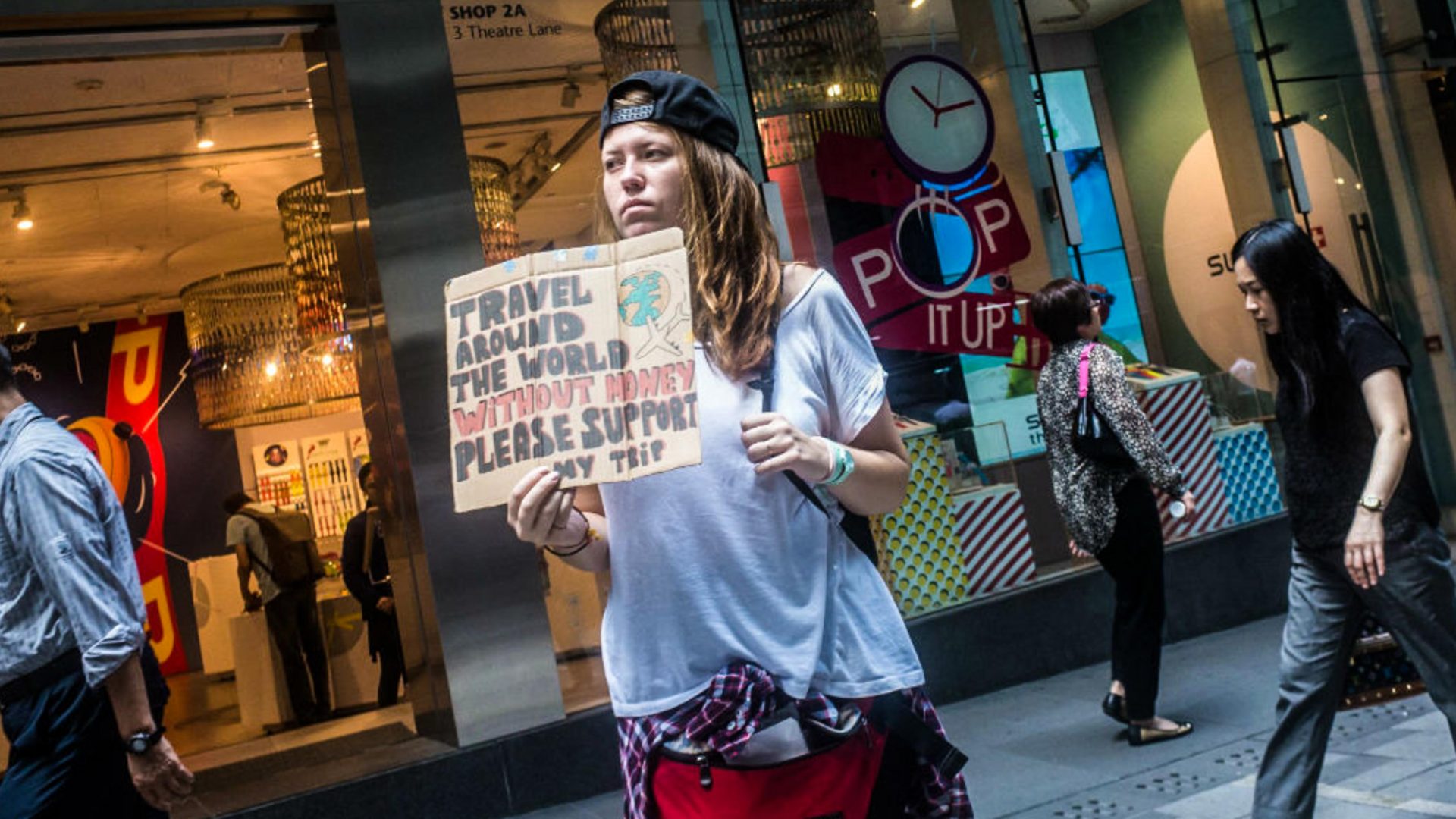When major tourist destination Bali announced last month that ‘beg-packing’ tourists will be sent back to their respective embassies for further action and aid, the call to attention for other Southeast Asian countries to follow suit picked up steam.
‘Beg-packing’, so named for the disgraceful act of backpackers and holidaymakers actually soliciting funds solely to continue their round-the-world holiday trip, has become a serious issue in many parts of the Southeast Asian region. ‘Beg-packers’ will often establish themselves in a high-traffic areas of a city, to be seen peddling, busking, or just outright begging with a cardboard sign imploring passers-by to aid in financing their travels.
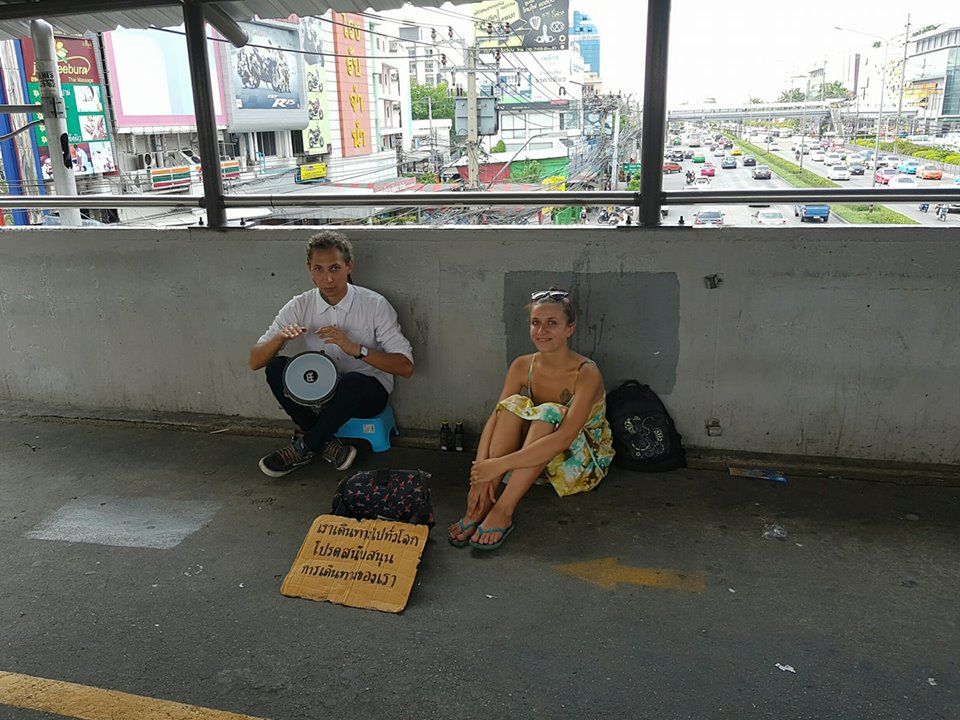
While the sight of ‘beg-packers’ have not been totally uncommon for the past decade, the escalating notion of travelling without a care for solid funds is definitely a worrying one, especially with those begging coming from relatively wealthier countries such as Australia, Britain, and the USA.
Not only that, blatant disregard for local socially acceptable behaviours and authority have also been noted to occur. Back in February of this year, a couple was arrested by Malaysian police in the popular area of Bukit Bintang, Kuala Lumpur for suspected child endangerment. A video of the couple busking and swinging a baby around for stunt value shocked viewers, prompting outrage from both local Malaysians and global audiences. Later in May, another video emerged of obvious tourists in the historical city of Melaka verbally lashing out at a local for inquiring about their peddling.
Begging is not an uncommon sight in the societies of Southeast Asia, but reasoning that you need money as a tourist so that you can continue travelling will deservedly draw comments of a critical nature. Many locals from Malaysia, Indonesia, Thailand, and Vietnam to name a few, find ‘beg-packing’ an insult to the tourism industry and the kindness of their people, who ideally would try to help someone in need. Needless to say, many of the nationals of the countries from which these shamelessly entitled travellers originate would be mortified by the actions of their countrymen, too.
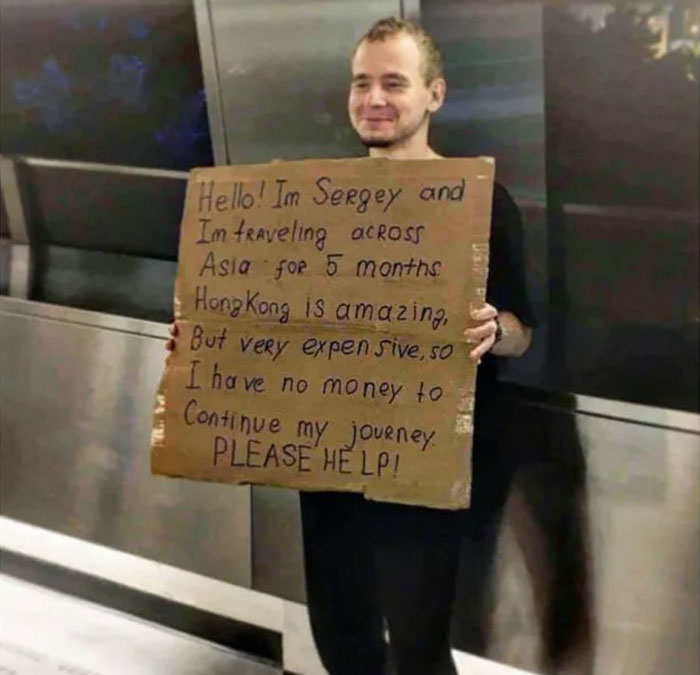
It almost goes without saying that as a middle-class wage earner (at best) in a developing nation, the sight of people begging and peddling to fund their next dream destination is off-putting. Be it for holiday or business-related trips, a self-funded trip is an outright luxury, something most middle-income earners here have to seriously plan for. And from the other side of the equation, as a tourist visiting a foreign country, no matter how briefly, why would you reduce your travel experience to begging and staying on the streets?
Some might argue that it is the perfect way to witness the culture of the country, or to ‘test’ how kind Southeast Asians really are (in some bizarre social experiment on humanity no doubt), but for many, the ‘beg-packer’ modus operandi of soliciting their tourist status leaves a bad impression for all.
Raking in money as a tourist sounds preposterous: a tourist is here to enjoy the surroundings, not exploit it.
Entry requirements for a Malaysian visa state that a visitor is required to prove financial ability to stay in Malaysia and possess a travel ticket for a return or a next destination, a requirement most countries reasonably expect of visiting tourists.
The question of ‘beg-packers’ so obviously slipping through the cracks of these travel stipulations is unsurprising given the less-than-stellar conduct of local officials, but awareness must be raised.
Infamous ‘beg-packers’ like Benjamin Holst, who took advantage of a medical condition to earn the title “Most Hated German in Thailand” was found partying away in bars with his “beggar’s income.” (He is now blacklisted from entering most Southeast Asian countries), and a couple who started busking in a Singaporean MRT station, an illegal act there which can result in a S$10,000 fine, reveal the extent ‘tourists’ will go to in expecting Asian locals to accommodate them and fund their holidays.
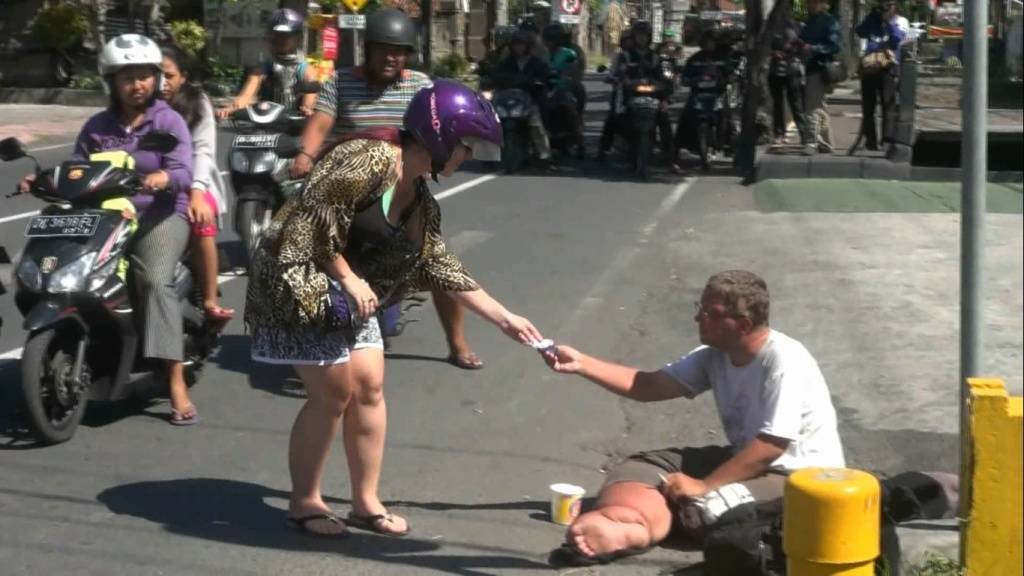
An Ukrainian ‘beg-packer’ even gained popularity in Thailand selling pictures of himself for a price of THB100 (US$3) to Thai women fawning over his apparent dilemma of trying to raise money to fly home and continue travelling the world.
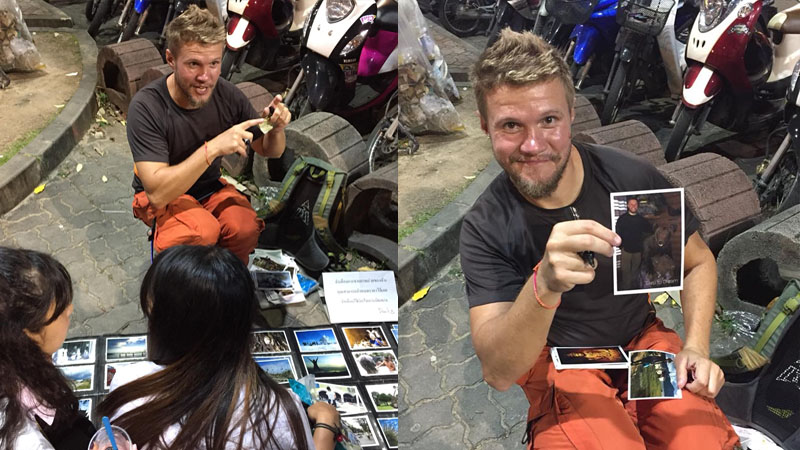
From the locals’ perspective in a Southeast Asian native, seeing these entitled people come to our streets and beg for petty cash so they can sustain or extend their travels is both baffling and insulting.
Local online activist Nandini Balakrishnan has spoken out on the issue of ‘beg-packing’ strongly, calling out these tourists on their entitlement and audacity to assume that coming to our countries and begging is alright. While many Southeast Asian countries, Malaysia included, claim to be friendly and hospitable nations, for backpackers to come and take advantage of this is nothing but exploitative.
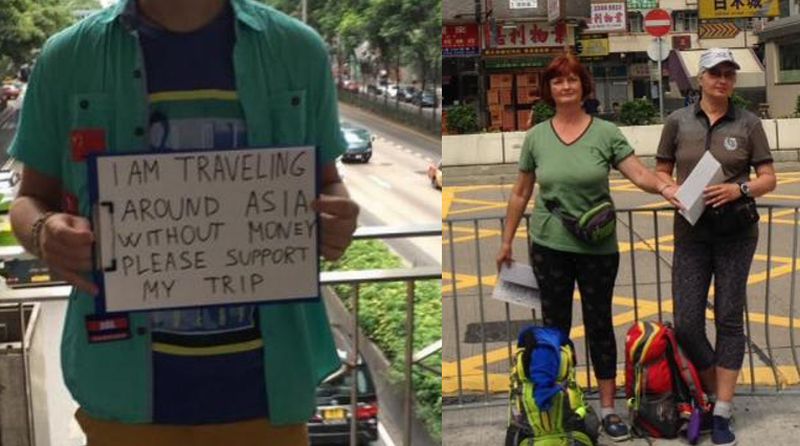
Running on charitable behaviour has taken on ridiculous perspectives, with platforms such as GoFundMe even having a travel section dedicated to people posting their campaigns to raise money for a good holiday. For most people around the world, holidays are something you earn by way of working and saving.
Most locals will hardly confront this issue head-on as most of us are non-confrontational, and we readily offer respect to people who come here wanting to see and experience our beautiful country. All we figure most residents would ask for is the same respect back for the general population who struggle to save for even a local road trip, and not have this First World privilege and sense of entitlement rubbed blatantly in their faces.
"ExpatGo welcomes and encourages comments, input, and divergent opinions. However, we kindly request that you use suitable language in your comments, and refrain from any sort of personal attack, hate speech, or disparaging rhetoric. Comments not in line with this are subject to removal from the site. "


